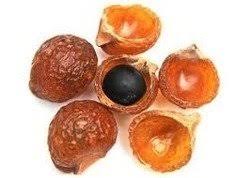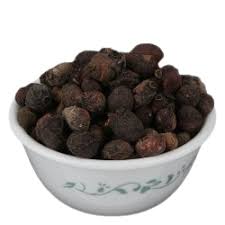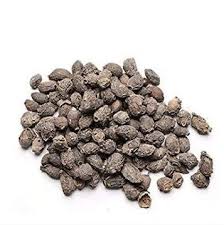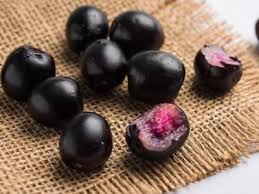
Why Paneer Phool is Known as a Sacred Herb
Throughout India’s ancient herbal traditions, some plants have held a place not just in medicine, but also in spirituality, rituals, and sacred customs. One such herb is Paneer Phool (Withania coagulans), also known as Paneer Dodi, Indian Rennet, or Rishyagandha.
While most people know it for its diabetes-controlling and liver-detoxifying abilities, very few are aware that Paneer Phool is also regarded as a sacred plant in various regions of India. From village rituals to tribal customs, this tiny dried fruit has deep cultural, healing, and energetic significance.
In this article on Dirghaanshi, we explore why Paneer Phool is called a sacred herb, the spiritual beliefs associated with it, its role in folk medicine and rituals, and how you can connect with its healing in a more meaningful way.
🪔 Long Description
🌼 What is Paneer Phool?
Botanical Name: Withania coagulans
Family: Solanaceae
Common Names: Paneer Dodi, Indian Rennet, Doodhi Phool, Rishyagandha, Paneer Phool
Part Used: Dried fruits/berries
Paneer Phool has been used across Indian households for generations, especially in rural and tribal regions. Beyond its medicinal benefits, it is respected as a sacred offering to deities, a symbol of purity, and a protector against negative energies.
🕉️ Paneer Phool in Sacred Rituals and Traditions
🛕 Used in Poojas and Ritual Offerings
In many Indian homes, especially in Rajasthan, Uttar Pradesh, and Gujarat, Paneer Phool is:
Offered during Diwali Lakshmi Poojan for purity
Burned in havan kunds to purify the environment
Placed near Tulsi plants or family temples
Soaked in water and sprinkled around homes for cleansing negative energies
It is believed that the aroma and essence of Paneer Phool purify the home and body. This is why it is often kept along with turmeric, camphor, and neem in pooja thalis.
🌿 Symbol of Holistic Balance
In ancient healing systems, sacred herbs were defined as those that offered benefits not only to the body but also to the mind and soul. Paneer Phool is said to balance the three doshas—Vata, Pitta, and Kapha—and bring:
Mental clarity
Physical detoxification
Spiritual calmness
These benefits make it fit for both medicinal and divine use, especially in Ayurveda and Siddha-based home rituals.
🌄 Used in Tribal Spiritual Healing
In regions like Madhya Pradesh, Himachal Pradesh, and Maharashtra, tribal healers or Bhumkas and Ojhas use Paneer Phool in:
Spiritual healing rituals for fear, evil eye, or chronic illness
Nighttime prayers to invoke protection for children and elders
Creating medicinal charms or herbal bags tied around the arm or waist
It is not unusual to find Paneer Phool stored in cloth pouches inside huts for spiritual safety.
🙏 Cultural Beliefs Around Paneer Phool as Sacred
🧘♀️ 1. Associated with Divine Energy (Shakti)
Paneer Phool is sometimes referred to as “Shakti Vardhak Jadi Buti” in folk language. This means a herb that enhances energy, vitality, and inner power. It’s believed to:
Awaken the third-eye chakra when consumed mindfully
Promote clarity in mantra meditation
Support mental focus during spiritual fasting and detox
🌞 2. Morning Rituals in Villages
In some Indian villages, especially in Rajasthan and Gujarat, a morning glass of soaked Paneer Phool water is not just for health but for spiritual awakening. It is drunk:
After bath, before sunrise
Facing east (sun direction)
With mental chants or prayers
This is considered a sacred cleansing ritual for the body and aura.
🪶 3. Used for ‘Energy Reset’ During Seasonal Changes
During seasonal transitions, especially between summer to monsoon or winter to spring, traditional homes follow a routine of:
Drinking Paneer Phool water
Burning its powder with camphor
Washing hands with its decoction
These are believed to reset the body and remove seasonal dullness, negative energy, and toxins.
🌿 Medicinal Value That Makes It Sacred
Paneer Phool is revered for its ability to heal without side effects, which is one reason it is considered sacred. It is:
Non-toxic when used properly
Sattvic (pure) in Ayurvedic energy terms
Suitable for people of all ages and energies (except infants and pregnant women)
🌿 Medicinal Qualities:
Withanolides: Regulate metabolism, improve immunity
Alkaloids: Reduce inflammation and balance hormones
Flavonoids: Detoxify liver and blood
Antioxidants: Support mental clarity and spiritual alertness
🔬 What Makes a Herb ‘Sacred’?
According to Indian herbal philosophy, a herb becomes sacred when it:
Grows naturally without chemical interference
Has multiple healing effects (physical + energetic)
Is accepted across systems (Ayurveda, Unani, Siddha, Folk)
Is safe and usable by most
Is connected with rituals, fasting, or divine ceremonies
Paneer Phool ticks all these boxes, making it one of the few multi-purpose, cross-functional, sacred herbs in India.
🧴 How to Use Paneer Phool as a Sacred Healing Herb
1️⃣ Morning Detox Water
Soak 7–10 dried berries in a glass of water overnight
Drink filtered water on an empty stomach
Use this as part of your daily detox and grounding practice
2️⃣ Spiritual Tea (Sattvic Kadha)
Boil Paneer Phool with:
Tulsi (Holy Basil)
Ginger
Cardamom
Drink slowly while meditating or doing breathwork.
3️⃣ Herbal Smoke (Dhoopan)
Burn dried Paneer Phool with:
Frankincense
Camphor
Cow dung cake
Use this to cleanse your space energetically and promote calmness.
4️⃣ Offering in Pooja
Add Paneer Phool to your:
Water kalash
Daily deity offering thali
Ritual havan items
It enhances the purity and sattva of your spiritual practices.
⚠️ Precautions (Even for Sacred Herbs)
Don’t overuse — 7–10 berries a day is enough
Always source from trusted sellers (like Dirghaanshi) to avoid adulteration
Not advised during pregnancy or lactation
Not a substitute for insulin or prescribed medicine
Always do a small dose test if you are using it for the first time
🧾 Conclusion
Paneer Phool is not just a medicinal herb. It is a sacred botanical gift, recognized by communities, healers, and ancient wisdom keepers across India. Whether in rituals, folk medicine, spiritual healing, or daily health routines, its gentle energy and healing properties offer us balance, clarity, and strength.
At Dirghaanshi, we don’t just provide herbs—we share their sacred history, cultural context, and holistic healing potential. When you choose Paneer Phool, you choose a legacy of divinity, nature, and self-care rooted in Indian wisdom.













